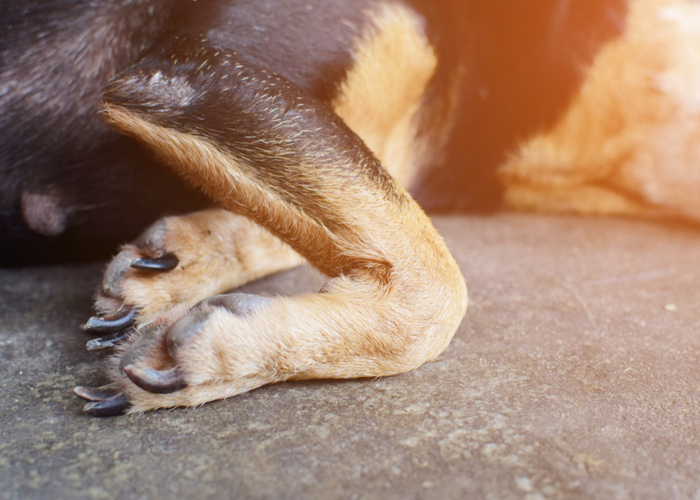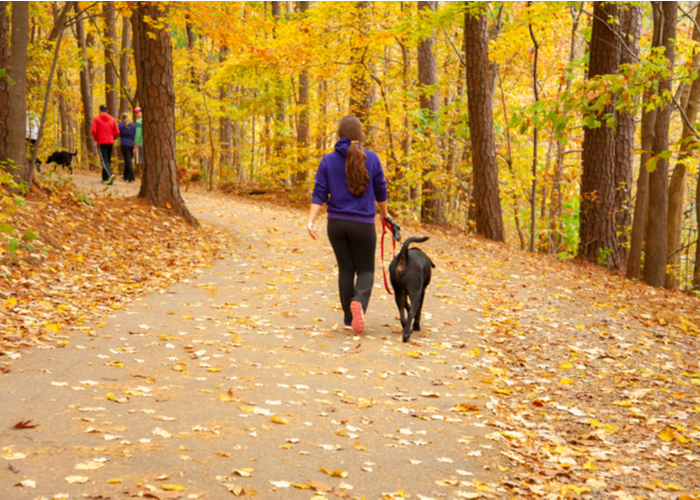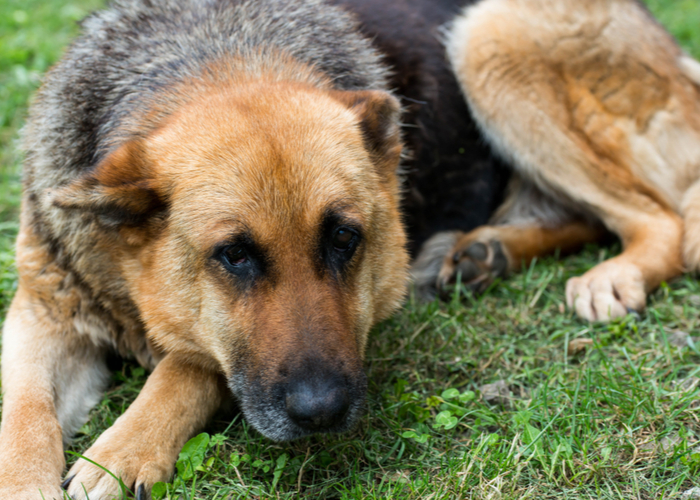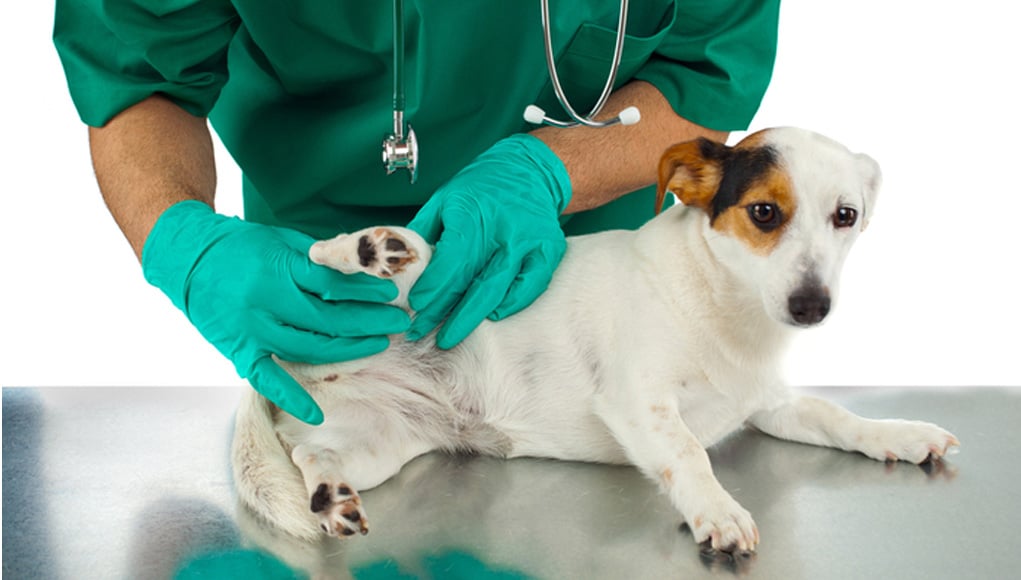Table of Contents
- What is a Joint, and Why Is It Important?
- What Causes Joint Problems in Dogs?
- How to Know If Your Dog Suffers From Joint Pain and Other Joint Health Problems
- How to Improve Dog's Joint Health
- 1. Massage Joints for a better joint health
- 2. Provide the nutrients they need to improve their joint health
- 3. Give additional supplements for your fido
- Best Overall Supplement: Nutramax Cosequin Maximum Strength MSM Chewable Tablets
- Best Breed Specific Supplement: WoofWell Health Supplement
- Best Au Naturale Supplement: NaturVet Senior Wellness Hip & Joint Advanced Soft Chews
- Best Flavored Vitamins: Zesty Paws Senior Advanced Mobility Bites
- Best Gluten-Free Product: Fera Pet Organics Hip + Joint Support for Dogs
- Best Liquid Joint Supplement: Nordic Naturals Omega-3 Pet
- Best Organic Supplement: BIXBI Pet Hip & Joint Support
- 4. Improve their home environment
- 5. Exercise your fido to improve their joint health
- What Dog Breeds Are More Susceptible to Joint Health Problems?
- SUMMARY
Does your dog struggle to stand and walk upstairs? That's a sign that your dog's joint health is in jeopardy.
Whether your dog is predisposed to joint diseases or not, there's a high chance that your dog may develop them.
But how can you protect your canine companion from this painful distress?
If you want to:
- Know how to improve your dog's joint health
- Get an insight into the common joint problems in dogs
- And learn if your dog's breed is prone to joint problems
This article is for you.
But, before we reveal our tips, let's talk about joint's importance and the causes of the problem first.

What is a Joint, and Why Is It Important?
When two bones are joined together and maintained in place by supporting tissues, a joint is formed.
Joints can move a lot, like the shoulder and hip joints.
Others have limited movement, like the joints connecting the bones in the skull.
Components of a joint in dogs:
A joint is made up of a few essential components, each with its unique function.
1. Connecting bones
The anatomy of the joint is made up of bones.
The integrity and stability of the joint depending on how they are shaped when the dog is growing.
2. Cartilage
The cartilage dampens the hammering effect when standing, running, and leaping.
It is a tough connective tissue that connects the bones.
When cartilage is torn or worn away, the bones collide, resulting in severe discomfort and inflammation.
3. Synovium and synovial fluid
These fluids running between bones and cartilage are like lubricants that help bones glide across each other effortlessly.
The cartilage is prone to deterioration and strain without the synovial fluid.
And arthritis is likely to follow once the cartilage gets damaged.
4. Ligaments
Lastly, the ligaments are the connective fibers that run down the sides of the joint.
These connect the bones and keep them from shifting out of place.
Importance of Dog's Joints and Joint Health
Similar to us humans, joints are what allow canines to move around freely.
The skeletons would have no strong structure if the joints were not present.
Without them, our bones would collide, and our skeletal structure will sustain damage whenever we jump, jog, or change positions.
And it will be challenging to repair them once it becomes damaged.
So, our joints and our canines deserve credit for every little thing we do.
Therefore, a dog's joint health's importance isn't something that should be overlooked.

What Causes Joint Problems in Dogs?
Here are the most common contributing factors and causes of joint problems in dogs.
Contributing factors:
Age
The cartilage in your dog's joints will start to degrade as they become older.
Although arthritis is more common in older or senior dogs, it can also affect younger canines.
Breed
Arthritis and impaired movement are more common in large breed dogs.
Labrador retrievers, Golden retrievers, German shepherds, and Rottweilers are among these dog breeds.
Excess weight
Excess weight on your dog means excess stress on the joints and cartilage, leading to arthritis and joint health problems.
Possible causes of joint health problems
Congenital or hereditary defects
Some dog breeds may be predisposed to having arthritis later in life due to congenital or inherited problems.
Accidents or trauma
Accidental stress to cartilage can cause cartilage damage, leading to arthritis later in life and impairing your dog's movement.
Infection
Infections can also damage cartilage and joint tissue because the bacteria can cause both rapid cartilage deterioration and bone damage.
Two classifications of joint diseases:
1. Developmental joint issues
Overdevelopment or underdevelopment of the bones linked at the joints is what causes joint developmental problems.
For instance, hip sockets are frequently too large, causing the hip bone to jump out and two bones to rub with each other.
Hip dysplasia develops as the dog ages as a result of this continual friction.
2. Degenerative joint disease (DJD)
The most prevalent cause of arthritis in canines is DJD or osteoarthritis.
This condition happens when the cartilage around the bones deteriorates.
It is more common in older dogs, particularly if their synovium ceases generating lubricating fluid.

How to Know If Your Dog Suffers From Joint Pain and Other Joint Health Problems
Most dogs are prone to joint pain, but some are more susceptible than others.
Obese dogs, working breeds, athletic dogs, diabetic dogs, and those who have been traumatized or injured are among them.
Because dogs are so good at masking pain, your dog will only show signs of discomfort when it becomes unbearable.
But, if he shows the following signs and symptoms, you'll know he's having joint problems.
1. Limping or preferring one side over the other
The most obvious symptom that your dog is suffering from arthritis is if he limps or favors one side over the other.
Doing it helps them keep the weight off their injured joint.
2. Standing with just front legs
If your canine only utilizes their front legs when standing up, it can indicate he's suffering from hip dysplasia.
It's a common form of arthritis in dogs.
They usually don't use hind legs and hips to refrain from putting pressure on them.
3. Refusal to jump or climb stairs
Jumping and inclining are both strenuous on the joints.
So, when you observe your dog if it's struggling to climb upstairs or at the back of your SUV, it could be a sign that he's going through joint issues.
4. Depression or lethargic behavior
Dogs love to have some fun by running around and detecting new scents.
But most significantly, they love playing with the best toy humans have ever invented—the ball.
When their ability to do all of this becomes limited by joint discomfort, they can become depressed and weak.
5. Muscle degeneration
Dogs can occasionally conceal joint pain by shifting their weight to their other legs.
It causes the muscles around the afflicted joint to deteriorate fast, thus, exacerbating the condition.
6. Swollen joints
The swelling of the joints is usually induced by the inflammation caused by joint discomfort.
Detecting the problem at an early stage can help prevent future injury to the joint.
7. Shifting temperament
A canine's greeting of wagging tails always brings joy to its owner.
However, if your furry companion develops persistent pain in the hips, knees, or elbows, this gesture might be gone.
Sadly, this disability can result in a total shift in temperament and might make them irritable.
8. Licking the affected joint
Canines usually lick their cuts in an attempt to help them heal.
So, it's natural for them to lick the affected joint to relieve the pain, but it could indicate that your fido suffers from joint problems.
However, you have to prevent them from licking them when it comes to wounds because it can lead to infection.

How to Improve Dog's Joint Health
Here are some tips that can significantly improve your dog's joint health.
1. Massage Joints for a better joint health
Before massaging your fido, you have to inquire with your vet if it's appropriate for your pet.
If the veterinarian agrees, you can try numerous approaches before settling on one that your dog enjoys.
But make sure to warm up his body with long strokes before you begin.
Lastly, keep an eye on inflammation and avoid putting pressure on any areas that your dog finds painful.
2. Provide the nutrients they need to improve their joint health
These are the nutrients essential for a dog’s joint health.
Water
This one is a no-brainer. Just like humans, dogs need to drink cool and freshwater.
Proper hydration can help keep their joints well-fabricated, thus, allowing them to move and flex when necessary.
On the other hand, dehydration will make the tendons and ligaments stiff, worsening the pain.
Protein
A dog's muscles and tissues are as equally important as joint health because they support the joints.
Therefore, it is only logical to take care of them, and the nutrient that can do the job is protein.
Since they're the body's main building blocks, they help build and repair muscle tissues.
But it can be challenging to know how much exactly your dog needs.
In this case, seeking vet assistance is imperative before feeding your fido.
Omega 3-Fatty Acids
These healthy acids found in fish and plant oils, marine algae, and green-lipped mussels are essential for dogs.
They aid in skin and fur problems, cognitive function, heart diseases, and even arthritis.
If your fido needs help reduce inflammation and maintain healthy joints, this practical and organic nutrient is the answer.
Methylsulfonylmethane (MSM)
This naturally-occurring sulfur is a cell rejuvenator, an antioxidant, and joint healer in one.
It is usually provided in pill form and is unfortunately left out of the bulk of dog joint supplements.
But it is beneficial at alleviating pain and inflammation.
Hyaluronic Acid (or HA)
The dog's body naturally produces this gel-like substance that serves as a shock absorber and helps lubricate its joint fluid.
Supplements with HA are suitable alternatives for damaged HA in the joints caused by overuse, aging, or trauma.
Natural Anti-Inflammatories
As previously said, inflammation is the number one adversary of healthy joints.
You may hesitate to give your fido some anti-inflammatory medicines due to their adverse side effect.
But the good news is there are natural anti-inflammatory treats from nature that can reduce swelling in a dog's joints.
They include:
- blueberries,
- fatty fish
- sweet potatoes
- fresh ginger root
- spinach
- pumpkin
- turmeric (from a new root, powdered, or in supplement form)
Glucosamine
Perhaps you've already heard about this oldest and most-researched ingredient in dog joint supplements.
This amino sugar is a holy grail for a reason — it helps keep the cartilage and joint function healthy.
Dogs produce this compound naturally, but as they age, their natural production becomes inadequate.
That's why arthritic dogs need it in their supplements to boost such crucial nutrients.
Chondroitin Sulfate
Since hydration is vital for better joint health, this complex carbohydrate substance is a need for every dog.
Why? It's because it helps the cartilage retain water and promote elasticity needed for the dog's mobility.
Additionally, this wonder nutrient prevents many degradative enzymes from breaking down cartilage and joint fluid.
3. Give additional supplements for your fido
If you struggle to look for homemade recipes that contain all the nutrients that improve joint health, these supplements can be an excellent addition to their diet.
No products found.
Best Overall Supplement: Nutramax Cosequin Maximum Strength MSM Chewable Tablets
We'll kickstart our list with the popular choice that supports cartilage production.
Many vets recommend this chewable tabs since it's rich with glucosamine, chondroitin sulfate, MSM, and chondroitin.
Additionally, they're proven effective in reducing pain and improving pets' mobility undergoing treatment for joint issues.
So, you can be sure that this supplement can help your dog get back to its paws.
No products found.
Best Breed Specific Supplement: WoofWell Health Supplement
These NASC-approved supplements were specifically designed for breeds prone to arthritis, including Golden retrievers and German shepherds.
We love that it comes with four essential nutrients- glucosamine, MSM, Omega 3, and chondroitin sulfate at a lower price.
Plus, it has a tasty bacon flavor your fido will love.
- SENIOR CARE - Veterinarian...
- INGREDIENTS THAT WORK -...
- TASTES LIKE A TREAT - Tasty...
- MADE IN THE USA and...
- SATISFACTION GUARANTEED - All...
Best Au Naturale Supplement: NaturVet Senior Wellness Hip & Joint Advanced Soft Chews
The edge of this supplement is it's all-natural and originally designed for Labs who were diagnosed with arthritis and hip dysplasia.
Since it's NASC-approved, you can trust that the MSM, glucosamine, and chondroitin from these chewable tabs deliver results.
- America’s #1 Selling Dog...
- Glucosamine, Chondroitin &...
- Enhanced with OptiMSM - At...
- Turmeric Extract & BioPerine -...
- For strength, flexibility &...
Best Flavored Vitamins: Zesty Paws Senior Advanced Mobility Bites
Your dog deserves a tasty treat, and what could make them happier than having healthy chicken-flavored bites?
These mobility bites promote hip and joint function through their glucosamine, curcumin, chondroitin sulfate, and MSM features.
They come in various flavors from duck to bacon, plus it's backed with NASC seal.
- A natural treatment for...
- Enhances bone and joint health...
- Rich in Omega-3 fatty acids...
- Complies with high standards...
- Bears the NASC Quality Seal...
Best Gluten-Free Product: Fera Pet Organics Hip + Joint Support for Dogs
If you want a gluten-free and preservative-free supplement for your dog's joint, this is a good find.
It's an anti-inflammatory soft chew that features organic turmeric combined with yucca root, green-lipped mussel, and fish oil.
So, it comes with glucosamine, MSM, and chondroitin, which are highly essential and do wonders for fidos.
On top of that, it has a chicken liver flavor your dog will enjoy.
- WHY OMEGA-3 PET - This Nordic...
- PROACTIVE PROTECTION FOR YOUR...
- YOUR PETS DESERVE THE BEST -...
- PURITY GUARANTEED - Every...
- ETHICAL INNOVATION - Nordic...
Best Liquid Joint Supplement: Nordic Naturals Omega-3 Pet
Is your pet a picky eater? If yes, this might be the one for your fido.
This flavor-free fish oil supplement derived from anchovies and sardines is a good source of Omega 3.
Additionally, its formula is gluten-free and great for cats and small dog breeds.
- JOINT SUPPORT: BIXBI Joint is...
- ORGANIC PET SUPERFOOD FORMULA:...
- ALL NATURAL, GRAIN FREE &...
- USA MADE AND SOURCED: All...
- USDA ORGANIC & NASC CERTIFIED:...
Best Organic Supplement: BIXBI Pet Hip & Joint Support
This organic formula made of mushroom blend helps boost the production of chondroitin sulfate and hyaluronic acid.
It's clinically proven to reduce joint pain and backed with NASC seal, so the quality is guaranteed top tier.
4. Improve their home environment
Aged dogs with movement difficulties need a safe, pet-proof environment and easy-to-access home just like humans.
So, you may have to adapt your home according to your fido's needs.
Here are some things you can do to relieve their everyday struggle in your home:
Use soft beddings
Upgrade to soft, low-to-the-ground bedding if possible to avoid stressing their joints.
Having a memory foam bed is also worth considering.
It's a little more pricey, but it's highly durable and easy on the joints.
Flooring
Hardwood and other slippery floors are dangerous for dogs with joint or mobility issues.
So, it would help if you'd put rugs or traction strips, especially along your fido's usual route in your home.
Steps and ramps
Getting in and out of a car, bed, and front doorstep is easier if you'll install steps and ramps.
It helps support their joints and protect your dog from further damaging their weak joints.

5. Exercise your fido to improve their joint health
We may love seeing our beloved companions being extra fat as it makes them look more adorable.
But it poses a risk to the dog's joint health.
Obesity and being overweight can put a lot of strain on their joints.
Since the excess weight is not subsidized by extra cartilage or synovial fluid, the bones are forced closer together, creating friction.
So, aside from providing nutritious foods, maintaining a lean figure through exercise is crucial for dogs.
It can help reduce the pressure on their joints.
However, running, jumping, catching, and other high-impact activities can destabilize their joints and cause serious injury.
But here are some low-impact exercises ideal for arthritic and old fidos.
Low Impact Exercises for Dogs with Joint Problems
Swimming/ Hydrotherapy
Water-based sports are not always a feasible option for dog owners.
But this low-impact exercise can reduce the burden on a dog's joints while still working those vital body parts.
If you don't have access to a pool, you can ask for a hydrotherapy professional's assistance.
Another option is to arrange an aquatic play date with a buddy who does.
Walking and hiking
Walks aren't just good for joint health but also do wonders on their mental state.
You may need to tailor your walks according to your fido's needs, though.
For instance, a two 20-minute walk may be better for your pup than one 40-minute walk.
If you live in a hilly area, hiking to a cline may be too much for your pup.
In this case, a walk to a dog park may be more suitable and safe for him.
Indoor games
Since most outdoor games involve high-impact activities, switching to indoor ones may be more practical.
You can teach your dog how to utilize their sense of smell to locate toys or play hide and seek.
Trick training
Dogs have a strong desire for mental stimulation, which can be done through learning new tricks and words.
It doesn't just widen their vocabulary; it also strengthens their bond with you.
And according to studies, smart dogs can learn up to 250 words, each of which corresponds to a different command.
So why not utilize their memory for something purposeful and useful?
Playtime with other fidos
Sometimes, an organic and unrestrained playtime with other dogs is what your fido needs.
It allows your canine companion to spend its energy naturally while allowing them to rest anytime they need it.

What Dog Breeds Are More Susceptible to Joint Health Problems?
Larger and heavier dogs are more susceptible to osteoarthritis and other joint problems.
The reason is large breed pup's bones tend to grow faster than their bodies.
Additionally, they participate in more vigorous activities at a young age.
Those who are prone to obesity are likely to suffer from this condition too.
They include the following:
- German shepherds
- Labrador retrievers
- Golden retrievers
- Newfoundlands
- Bernards
- Rottweilers
- Great Danes
- Saint Bernards
- Old English Sheep Dogs
- Mastiffs
One notable exception in this list is the dachshunds.
They have long and low torsos, so they are more susceptible to both spinal and joint issues when they're overweight.
Other breeds that fall into this category are bulldogs and basset hounds.
Smaller dogs may also develop a joint condition called developmental patellar luxation.
It's a hereditary disease where the patella or knee cap gets dislocated.
This defect causes knee dislocation and forces the pup to hop around and relocate its displaced patella.
Breeds that are susceptible to developmental patellar luxation include:
- Maltese
- Pekingese
- Toy Poodles
- Pomeranians
- Yorkshire Terriers
- Jack Russell Terriers
- Boston Terriers
- Plummer Terriers
- Patterdale Terriers
- Cavalier King Charles Spaniels
SUMMARY
To sum it up, you can keep your dog’s joint health intact by providing the nutrients they need for their joints through a healthy diet and supplements.
Implementing a low-impact exercise program designed for their needs and maintaining a lean figure is also crucial to keep their joints healthy.
And if your vet recommends, you may also massage them to help relieve the pain.
Lastly, it would be helpful if you'll adapt your home to their needs by installing stairs and ramps, avoiding slippery flooring, and using soft beddings.
By implementing preventive steps and making sure your fido’s in shape, you can save him from pain and other severe canine health issues.
READ NEXT: Recipe: Homemade Dog Food for Joint and Hip Health
Disclosure: We may earn affiliate commissions at no cost to you from the links on this page. This did not affect our assessment of products. Read more here and find full disclosure here.


















